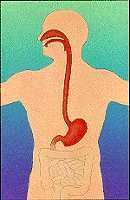 Microscopic colitis, though not as commonly recognized as other gastrointestinal disorders, presents a unique set of challenges for those affected. In this in-depth exploration, we will unravel the intricacies of microscopic colitis, shedding light on its causes, symptoms, diagnosis, and treatment options to empower individuals with knowledge and understanding.
Microscopic colitis, though not as commonly recognized as other gastrointestinal disorders, presents a unique set of challenges for those affected. In this in-depth exploration, we will unravel the intricacies of microscopic colitis, shedding light on its causes, symptoms, diagnosis, and treatment options to empower individuals with knowledge and understanding.
Understanding Microscopic Colitis
Microscopic colitis encompasses a group of inflammatory bowel diseases primarily impacting the colon. Distinguishing itself from other colitis types, the inflammation associated with microscopic colitis is visible only under a microscope. The two main subtypes, collagenous colitis and lymphocytic colitis, both involve inflammation and damage to the colon lining.
Delving into the Causes
The precise triggers of microscopic colitis remain elusive, but several factors may contribute to its development. Autoimmune reactions, genetic predisposition, and certain medications, including NSAIDs, PPIs, and SSRIs, have been identified as potential culprits. Unraveling the intricate interplay of these factors is crucial for a comprehensive understanding of the condition.
Decoding the Symptoms
Microscopic colitis often manifests with persistent, watery diarrhea, accompanied by abdominal pain and cramping. Weight loss, dehydration, and fatigue are common secondary symptoms. The chronic nature of the condition can significantly impact the quality of life, necessitating early recognition and proactive management to alleviate symptoms effectively.
Navigating the Diagnostic Landscape
Diagnosing microscopic colitis involves a combination of clinical evaluation, medical history assessment, and diagnostic procedures. The gold standard for confirmation is a colonoscopy with biopsy, enabling a close examination of the colon lining under a microscope. Stool tests may also be conducted to rule out other potential causes of chronic diarrhea, contributing to a comprehensive diagnostic approach.
Treatment Strategies for Microscopic Colitis
Effectively managing microscopic colitis involves a tailored approach, focusing on symptom relief and mucosal healing. Treatment plans may include lifestyle modifications, dietary changes, and medications. Anti-diarrheal medications such as loperamide can help control diarrhea, while corticosteroids like budesonide may be prescribed to reduce inflammation. In some cases, long-term management may involve immunosuppressive medications.
Lifestyle Modifications and Dietary Interventions
Adopting lifestyle changes and modifying dietary habits can significantly contribute to managing microscopic colitis. Eliminating trigger foods, maintaining a food diary, and staying well-hydrated are essential steps. Fiber-rich foods can also play a crucial role in symptom relief. This holistic approach empowers individuals to actively participate in their well-being and enhance their overall quality of life.Prognosis and Long-Term Outlook
The prognosis for individuals with microscopic colitis varies, marked by periods of remission and occasional flare-ups. While the condition is chronic, effective management strategies, regular follow-ups with healthcare providers, and a commitment to a healthy lifestyle are instrumental in achieving long-term stability and minimizing the impact on daily life.
Coping Strategies and Support
Coping with microscopic colitis involves not only medical interventions but also emotional and social support. Engaging with healthcare professionals, joining support groups, and staying informed about the latest research developments can provide valuable insights. Empowering individuals with knowledge and fostering a sense of community are essential elements in the holistic approach to managing microscopic colitis.
In conclusion, navigating the complexities of microscopic colitis requires a comprehensive understanding of its causes, symptoms, diagnosis, and treatment options. By unraveling the enigma surrounding this condition, individuals and healthcare professionals can work collaboratively to enhance the quality of life for those affected. Ongoing research and a proactive, multidimensional approach hold the key to unlocking better outcomes and brighter futures for individuals navigating the challenges of microscopic colitis.
Disclaimer:
The information on this website is provided for educational and information purposes only and is not medical advice. Always consult with a licensed medical provider and follow their recommendations regardless of what you read on this website. If you think you are having a medical emergency, dial 911 or go to the nearest emergency room. Links to other third-party websites are provided for your convenience only. If you decide to access any of the third-party websites, you do so entirely at your own risk and subject to the terms of use for those websites. Neither Arnon Lambroza, M.D., P.C., nor any contributor to this website, makes any representation, express or implied, regarding the information provided on this website or any information you may access on a third-party website using a link. Use of this website does not establish a doctor-patient relationship. If you would like to request an appointment with a health care provider, please call our office at 212-517-7570.


